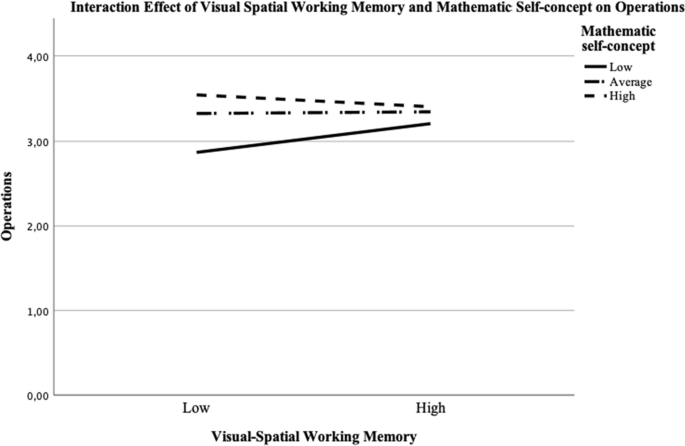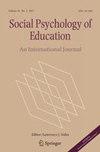数学自我概念对小学生认知功能与数学技能的关系有调节作用
IF 3.2
2区 心理学
Q1 PSYCHOLOGY, EDUCATIONAL
引用次数: 0
摘要
摘要本文研究了认知因素和情感因素对数学技能的影响。我们特别研究了自我概念对数学学习和数学表现的保护作用。在一项实地研究中,我们测试了数学自我概念和短期视觉空间工作记忆对意大利小学二年级儿童数学能力的影响。测量方法包括“计算和解决问题能力评价测试”(AC-MT 6-11)、向后科西积木测试(视觉空间记忆电池)和自我描述问卷- i的数学自我概念子量表(SDQ-I,意大利语版)。结果表明,数学自我概念和工作记忆对数学运算和计算能力有正向预测作用,但对准确性没有正向预测作用。简单的斜率分析证实了我们的调节假设,工作记忆预测数学自我概念在低水平的数学能力,而不是在中、高水平。讨论了理论和实践意义。本文章由计算机程序翻译,如有差异,请以英文原文为准。

Mathematics self-concept moderates the relation between cognitive functions and mathematical skills in primary school children
Abstract In this paper, we investigated the contribution of both cognitive and affective factors to mathematical skills. In particular, we looked at the protective role of self-concept for mathematical learning and performance. In a field study, we tested the relation of math self-concept and short-term visuo-spatial working memory to the mathematical abilities of second- grade primary school children in Italy ( N = 105). Measures included the “Test for the evaluation of calculating and problem-solving abilities” (AC-MT 6–11), the backward Corsi blocks test (Battery for Visuo-Spatial Memory), and the mathematics self-concept sub-scale of the Self-Description Questionnaire-I (SDQ-I, Italian version). As expected, correlation and moderated regression analyses showed that mathematics self-concept and working memory both positively predict mathematical operations and numeracy, but not accuracy. Simple slope analysis confirmed our moderation hypothesis, with working memory predicting mathematical abilities at low levels of math self-concept, but not at medium and high levels. The theoretical and practical implications are discussed.
求助全文
通过发布文献求助,成功后即可免费获取论文全文。
去求助
来源期刊

Social Psychology of Education
PSYCHOLOGY, EDUCATIONAL-
CiteScore
5.40
自引率
3.40%
发文量
59
期刊介绍:
The field of social psychology spans the boundary between the disciplines of psychology and sociology and has traditionally been associated with empirical research. Many studies of human behaviour in education are conducted by persons who identify with social psychology or whose work falls into the social psychological ambit. Several textbooks have been published and a variety of courses are being offered on the `social psychology of education'', but no journal has hitherto appeared to cover the field. Social Psychology of Education fills this gap, covering a wide variety of content concerns, theoretical interests and research methods, among which are: Content concerns: classroom instruction decision making in education educational innovation concerns for gender, race, ethnicity and social class knowledge creation, transmission and effects leadership in schools and school systems long-term effects of instructional processes micropolitics of schools student cultures and interactions teacher recruitment and careers teacher- student relations Theoretical interests: achievement motivation attitude theory attribution theory conflict management and the learning of pro-social behaviour cultural and social capital discourse analysis group dynamics role theory social exchange theory social transition social learning theory status attainment symbolic interaction the study of organisations Research methods: comparative research experiments formal observations historical studies literature reviews panel studies qualitative methods sample surveys For social psychologists with a special interest in educational matters, educational researchers with a social psychological approach.
 求助内容:
求助内容: 应助结果提醒方式:
应助结果提醒方式:


